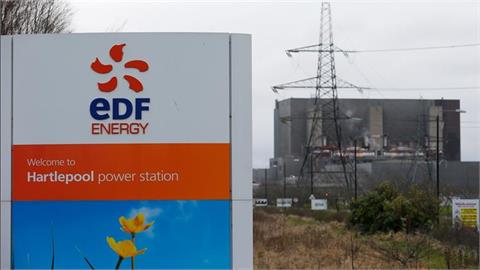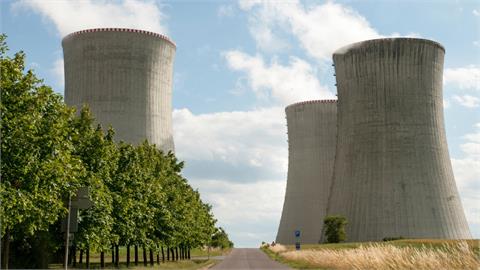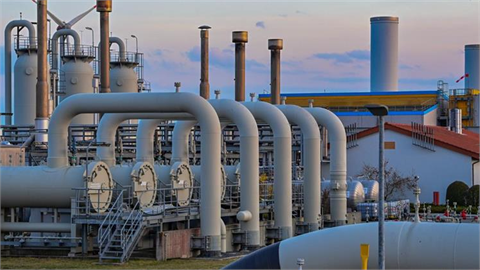by Leonard Hyman & William Tilles* The Edison Electric Institute, the electric industry lobbying group, appears to be fighting hard against any rapid policy changes. The American Petroleum Institute, representing the U.S. oil and gas industry, is pushing back against pressure to lean into the energy transition. While it is understandable why these groups want to defend their industries, this reluctance to change might undermine legacy companies going forward
Maybe we have been watching too many westerns, but we get the feeling that the fossil fuel industry lobbyists are psychologically somewhere between circling the wagons and preparing for a last stand.
In August, the Edison Electric Institute (EEI), the investor-owned electric industry lobbying group, selected a new chief executive, a climate change denying, fossil fuel executive and former member of the Trump administration. Environmentalists denounced the EEI for picking a climate denier as CEO. The EEI and its top honchos replied with the most anodyne of press releases, citing the organization’s and the industry’s fine environmental credentials. No point in inflaming the opposition. Just bore them or ignore them we guess. Most importantly, the message that the utility industry is sending is clear: “Don’t expect any real changes in policy.” Which we might interpret as, “Don’t rush things.” As we said earlier, it seems the industry’s leaders are circling the wagons, but more importantly, what are they afraid of?
In September, California launched its monumental lawsuit against the oil industry, accusing it of misleading the public about climate change. We’d been awaiting this sort of suit for some time. Litigation of this type was successful against both the tobacco and the opiates industries. The only thing that’s different this time is that the oil industry tried to be careful and not commit the same mistakes as the tobacco industry. Instead of lying about their product not causing harm, their efforts were focused on sowing doubt about the science of climate change even though as corporate executives they knew this effort to be false and not in good faith. So the overhang on the industry is whether it’s oil’s turn to get dinged in a big class action type lawsuit. The American Petroleum Institute (API) spokesperson responded that California’s lawsuit was part of an “ongoing, coordinated campaign to wage meritless politicized lawsuits against a foundational industry…” Sort of, “Let’s not discuss the merits of the case. They are out to get us.” Sounds to us (rhetorically at least) like the industry’s last stand.
Then, in the same month, the International Energy Agency (IEA) predicted that consumption of fossil fuels would peak within a decade. Again, what’s the big deal? If total energy demand rises maybe 1-2% per year, and if renewables (not including hydro) grow 10-20% per year, at some point the fossil fuel component of energy will have to peak. We are not even considering the wild cards, the renewable gas and hydrogen facilities springing up, and the possibility that we can extract hydrogen from natural deposits underground. The CEO of the API, the industry lobbying organization, accused the IEA of making a “splashy, headline grabbing claim” and declared that “oil and gas demand will remain massive for decades to come.” Well, back to the arithmetic. Demand for fossil fuels may remain massive, but that doesn’t mean it grows. Maybe it even begins to contract. That’s another last stand.
What accounts for the similarity of the API and EEI positions? Despite the difference in style and public rhetoric, they are similar in that both industry groups are hostile to change—unless it comes very slowly, slowly enough for them to adjust or get out before reaching some future demand cliff. And this really puzzles us. We understand that the oil industry sells a product whose major consumers are happily abandoning their product for electrified cars, trucks, etc. And one day they will have nothing else to sell. Electricity suppliers, on the other hand, are poised to gain massively from this change in consumption patterns, so why don’t they act that way? They talk the talk, but aren’t making the capital expenditures we would expect. We believe industry capital spending needs to rise 50-100% to decarbonize and modernize the industry over 20-30 years. Perhaps the electricity companies figure that by modernizing assets ever so slowly they will have time to depreciate all their old, fossil-fired assets —some of which probably never should have been built in the first place. Maybe. Then again, if utilities underspend and service continues to deteriorate, as it has, maybe the incumbent monopolies simply lose customers and “death spiral” themselves into economic irrelevance.
Trade organizations are outward-facing. They tell the public and politicians what the industry wants them to think. Corporate executives and investors, however, need to be guided by facts and markets, not industry propaganda. What do we know for sure? Demand for energy is growing slowly. Demand for oil is growing very slowly. The competition for oil, while still small, is growing fast. The California lawsuit may be the first of many. The legal discovery process is likely to be long, painful, and embarrassingly illuminating. If really illuminating, hedge funds that have invested billions to support litigation against corporations might get interested in financing suits against rich oil companies. So, maybe the best plan for oil companies is to ignore the victimhood and massive demand story, stick to investments that pay off quickly, and get money out of the corporation before draining legal settlements. We’ve said this before.
As for electricity suppliers, we worry about this painfully incremental approach to what is still basically a technology business. Why? Because competitors won’t always wait patiently until the electric companies have recovered all their old investments. It’s called creative destruction and in economic terms is seldom pretty. Legacy electric companies are like a technological ostrich— they have their heads buried in the sand so as not to see any potential for new developments coming sooner than expected. Or maybe industry executives are simply hoping that the recent spike in interest rates will stall the growth of competitive investments. As for investors, electrification, decarbonization, and hardening the infrastructure to cope with climate change will offer enormous opportunities for numerous businesses, so why not concentrate on companies that don’t have baggage that slows them down?
As an aside, the managements of neither industry have distinguished themselves in terms of creating value for investors in recent years:
% change in stock prices
5 years Year to date From high in year
S&P 500 +46% +11% -9%
S&P Oil -5 + 4 -2
S&P Electric +2 +20 -22
Neither the lobbyists nor the management, perhaps, have been advocating value-creating policies.
The moral of the story: ignore the press releases, do the numbers, and don’t watch too many westerns.
* Leonard S. Hyman is an economist and financial analyst specializing in the energy sector. He headed utility equity research at a major brokerage house and has provided advice on industry organization, regulation, privatization, risk management and finance to investment bankers, governments and private firms, including one effort to place nuclear fusion reactors on the moon. He is a Chartered Financial Analyst and author, co-author or editor of six books including America’s Electric Utilities: Past, Present and Future and Energy Risk Management: A Primer for the Utility Industry. You can find Leonard Hyman's lastest book Electricity Acts on Amazon.
William I. Tilles is a senior industry advisor and speaker on energy and finance. After starting his career at a bond rating agency, he turned to equities and headed utility equity research at two major brokerage houses and then became a portfolio manager investing in long/short global utility equities. For a time he ran the largest long/short utilities equity book in the world. Before going into finance, Mr. Tilles taught political science.
(Oilprice.com, October 04, 2023)




